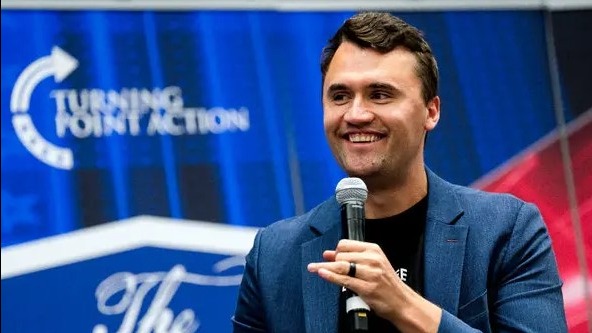
Understanding Political Violence in Contemporary America
The tragic assassination of Charlie Kirk—the polarizing conservative figure and founder of Turning Point USA—has sparked renewed discussions about the implications of political rhetoric in the United States. Illinois Governor JB Pritzker’s remarks following Kirk’s death highlighted a growing concern that incendiary speech from influential leaders can instigate violence among the populace. Pritzker pointedly accused former President Donald Trump of using rhetoric that "often foments" political violence, a statement that reveals a deepening rift in American political discourse.
The Consequences of Rhetoric: A National Concern
This incident is not an isolated event; it illustrates a broader trend where political figures’ words carry weighty consequences. On September 11, 2025, while addressing the nation, Pritzker emphasized the need for leaders to consider the impact of their language. The surge in political violence over recent years has led many to question the role of public figures in shaping a culture of aggression. The worrying rise of events reflecting this violence has led to notable instances, such as the January 6 Capitol riot, illustrating that the line between political speech and incitement has become dangerously blurred.
The Debate over Violence and Free Speech
The juxtaposition of free speech with the potential for violence poses a complex dilemma. Some argue that robust political discussions are essential for democracy, while others insist that political leaders must temper their language to prevent violence. This debate is particularly relevant given the contrasting perspectives presented by figures like Pritzker, who advocate for responsible speech, and Trump's supporters who believe his rhetoric merely expresses their frustrations with the current political landscape.
A Look into Charlie Kirk's Legacy and Its Impact
Kirk’s legacy evokes differing reactions across the political spectrum. While some hail him as a martyr for conservative values—asserting he fought valiantly for political beliefs—others argue that his platform may have reinforced divisions and hostility. This dichotomy is exemplified in the tributes from prominent conservatives who have lashed out against what they perceive as 'a culture of violence' aimed at political dissenters.
Public Reaction and Broader Implications
Responses to Kirk's assassination reflect a fracturing society wherein political views are increasingly polarized. Vigils and tributes have emerged, yet nuanced discussions around the implications of rhetoric often get overshadowed by outrage and fear. Ohio Senator, for instance, issued a stark warning that conservatives are being unfairly targeted, adding fuel to the ongoing ideological warfare within American politics.
Civil Discourse: A Necessary Component of Democracy
For society to emerge from this cycle of violence and anger, civil discourse must be reinforced. Engaging in dialogues that promote understanding over hostility is crucial to mitigate further violence. Pritzker’s condemnation serves as a reminder that fostering an environment where dialogue can flourish without fear of violent retribution is pivotal for the stability and health of democracy.
Looking Ahead: Political Rhetoric and Its Consequences
As the U.S. heads into an election cycle marked by tension and division, the implications of political speech on societal behavior inevitably raise critical questions. The response from politicians, public figures, and the media will significantly shape the national dialogue surrounding this topic. Understanding how rhetoric plays into the political landscape will be essential in driving the country toward a more united front.
In conclusion, as we reflect on Charlie Kirk’s life and the circumstances surrounding his tragic death, it becomes increasingly evident that the words we choose hold tremendous power. With leaders like Pritzker challenging the status quo, now is the time to be proactive in addressing how we talk about politics and engage in civic life. The call to action is more than just a political statement; it’s a plea for a more thoughtful, inclusive, and respectful conversation as we navigate the complex web of American identity.
 Add Element
Add Element  Add Row
Add Row 



Write A Comment